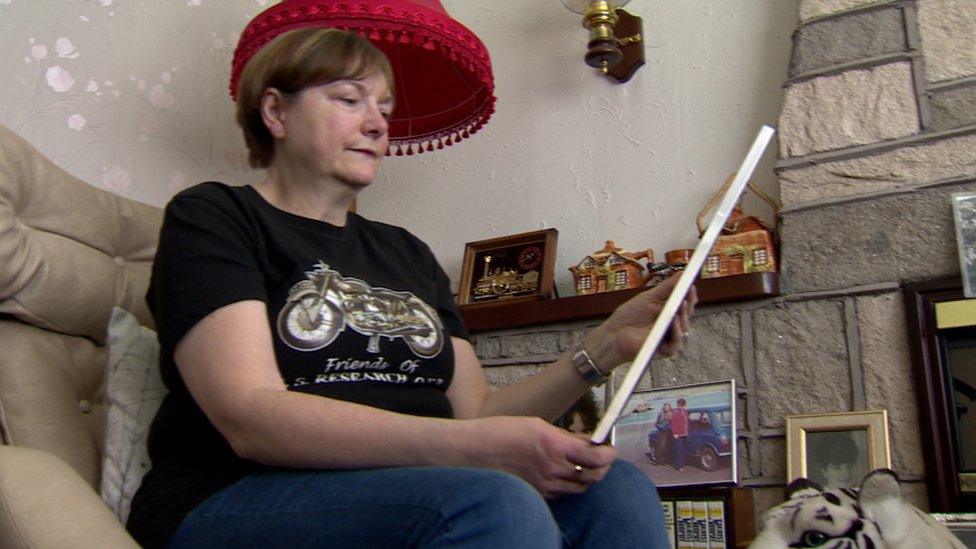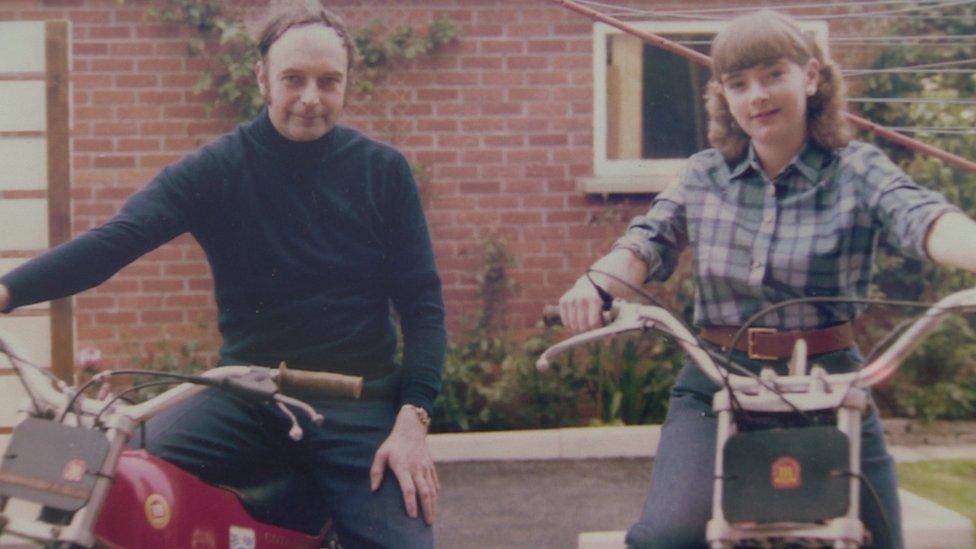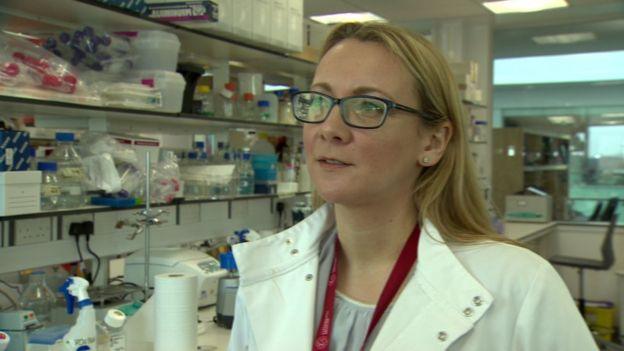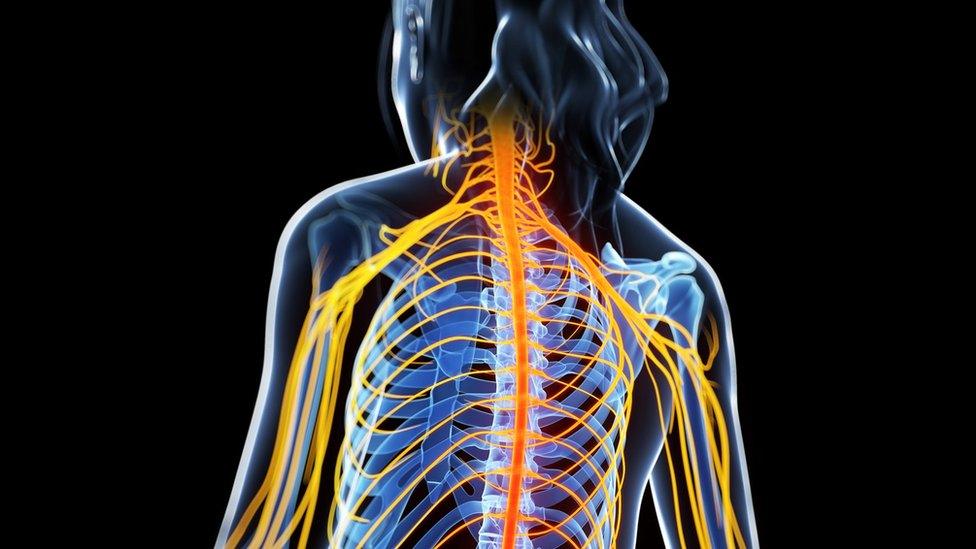MS sufferer given hope over 'cruel and unpredictable disease'
- Published

Caroline Jamison was diagnosed with MS in 2013
"A cruel and unpredictable disease - you don't know what it will rob you of next."
That is how Caroline Jamison describes living with multiple sclerosis (MS).
The County Antrim woman was diagnosed with the disease in 2013 - she also saw her mother die from it after first having to use a wheelchair and then succumbing to locked-in syndrome.
But Caroline says the news that research by scientists at Queen's University in Belfast could revolutionise treatment for MS sufferers gives her, and others, great hope for the future.
The 57-year-old also explains that her family's long and very personal connection to multiple sclerosis led her to fundraising directly for the scientists doing the research.
Sitting in her living room, surrounded by photographs and mementos of her mother and father, it is easy to see the influence they have had on her life.
Her mother, Rosemary, was told she had MS in her 30s and the disease often dominated family life.
"I was still at school but she had been tripping and falling for some time," she said.
"At first she thought it was just inner ear problems, but she was then told she had remitting and relapsing multiple sclerosis.
"It progressed over the years, by the end she couldn't move or speak. She was locked in - although her mind was very clear."

Caroline has raised funds by displaying her father's vintage motorcycles
Caroline's father cared for Rosemary for years before she died in 2007.
An engineer by profession, he found relief in restoring old motorcycles, and at the time of his own death left Caroline a collection of eleven vintage motorbikes.
Fundraising
Her own diagnosis with progressive multiple sclerosis means her mobility is affected, she wears a support on her ankle and walks with a stick.
Caroline also suffers from fatigue which she describes as "like somebody switching my lights off".
These debilitating symptoms coupled with what happened to her mother led to her feeling down - and she coped by doing something positive.
Her thoughts turned to that collection of vintage motorcycles.
"I was always very proud of them and when I heard about the research at Queen's I thought I would take them to shows and display them.
"That way I could raise funds while also telling people about the MS research which is being done at a university in Belfast."

She has met the lead scientists involved in the MS research including Dr Yvonne Dombrowski
Caroline says the first £500 that she raised helped pay for a vital piece of equipment that was used in the labs at Queen's.
With help from her fiancé, David, she has gone on to further fundraising.
She has met the lead scientists, describing Dr Denise Fitzgerald and Dr Yvonne Dombrowski as "like family".
Even more importantly, she says, their groundbreaking work gives her hope.
"My mum and dad would be thrilled because they always thought there might be a cure and this is pointing towards not only that, but improving life for people with MS," she added.
"My hope for this research is if there is not a cure in my generation, there will be one in the next."
- Published13 March 2017
